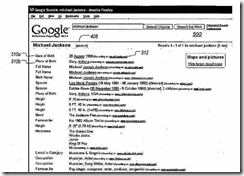Google and Its Use of the Word “Public”: A Clever and Revenue-Generating Policy Edit
July 6, 2023
![Vea4_thumb_thumb_thumb_thumb_thumb_t[1] Vea4_thumb_thumb_thumb_thumb_thumb_t[1]](http://arnoldit.com/wordpress/wp-content/uploads/2023/07/Vea4_thumb_thumb_thumb_thumb_thumb_t1_thumb-9.gif) Note: This essay is the work of a real and still-alive dinobaby. No smart software involved, just a dumb humanoid.
Note: This essay is the work of a real and still-alive dinobaby. No smart software involved, just a dumb humanoid.
If one has the cash, one can purchase user-generated data from more than 500 data publishers in the US. Some of these outfits are unknown. When a liberal Wall Street Journal reporter learns about Venntel or one of these outfits, outrage ensues. I am not going to explain how data from a user finds its ways into the hands of a commercial data aggregator or database publisher. Why not Google it? Let me know how helpful that research will be.
Why are these outfits important? The reasons include:
- Direct from app information obtained when a clueless mobile user accepts the Terms of Use. Do you hear the slurping sounds?
- Organizations with financial data and savvy data wranglers who cross correlate data from multiple sources?
- Outfits which assemble real-time or near-real-time user location data. How useful are those data in identifying military locations with a population of individuals who exercise wearing helpful heart and step monitoring devices?
Navigate to “Google’s Updated Privacy Policy States It Can Use Public Data to Train its AI Models.” The write up does not make clear what “public data” are. My hunch is that the Google is not exceptionally helpful with its definitions of important “obvious” concepts. The disconnect is the point of the policy change. Public data or third-party data can be purchased, licensed, used on a cloud service like an Oracle-like BlueKai clone, or obtained as part of a commercial deal with everyone’s favorite online service LexisNexis or one of its units.
A big advertiser demonstrates joy after reading about Google’s detailed prospect targeting reports. Dossiers of big buck buyers are available to those relying on Google for online text and video sales and marketing. The image of this happy media buyer is from the elves at MidJourney.
The write up states with typical Silicon Valley “real” news flair:
By updating its policy, it’s letting people know and making it clear that anything they publicly post online could be used to train Bard, its future versions and any other generative AI product Google develops.
Okay. “the weekend” mentioned in the write up is the 4th of July weekend. Is this a hot news or a slow news time? If you picked “hot”, you are respectfully wrong.
Now back to “public.” Think in terms of Google’s licensing third-party data, cross correlating those data with its log data generated by users, and any proprietary data obtained by Google’s Android or Chrome software, Gmail, its office apps, and any other data which a user clicking one of those “Agree” boxes cheerfully mouses through.
The idea, if the information in Google patent US7774328 B2. What’s interesting is that this granted patent does not include a quite helpful figure from the patent application US2007 0198481. Here’s the 16 year old figure. The subject is Michael Jackson. The text is difficult to read (write your Congressman or Senator to complain). The output is a machine generated dossier about the pop star. Note that it includes aliases. Other useful data are in the report. The granted patent presents more vanilla versions of the dossier generator, however.
The use of “public” data may enhance the type of dossier or other meaty report about a person. How about a map showing the travels of a person prior to providing a geo-fence about an individual’s location on a specific day and time. Useful for some applications? If these “inventions” are real, then the potential use cases are interesting. Advertisers will probably be interested? Can you think of other use cases? I can.
The cited article focuses on AI. I think that more substantive use cases fit nicely with the shift in “policy” for public data. Have your asked yourself, “What will Mandiant professionals find interesting in cross correlated data?”
Stephen E Arnold, July 6, 2023




